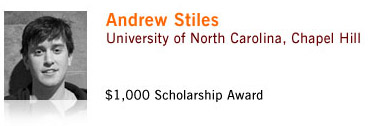
Small. Ignorant. Cowards.
By Andrew Stiles, Editorial Board member from Charlotte
The hateful, racist messages scrawled in the “Free Expression Tunnel” at N.C. State University — just hours after Barack Obama was elected the first black president in our nation’s history — are an unfortunate reminder that ignorance and bigotry still exist.
The four individuals who confessed responsibility for the messages are an embarrassment to their fellow students and to all of us as Americans.
That being said, I am disappointed by the overblown rhetoric surrounding this incident and concerned about the future of free speech on college campuses.
N.C. State is in the process of determining an appropriate punishment for the students, whose names haven’t been released because authorities determined that their actions didn’t constitute a crime.
State leaders of the National Association for the Advancement of Colored People want the university to expel the students and enact a “hate speech” policy to severely punish similar acts in the future.
I am not particularly concerned about the academic futures of these four students. But I do worry any time I hear talk of university “speech codes” that would restrict free speech on campus.
N.C. State should tread lightly in this case, not least because the law is firmly opposed to restrictive speech codes.
Ruth Walden, mass communication law professor in the School of Journalism and Mass Communication at UNC, says it is important to distinguish speech that is morally reprehensible from what is legally acceptable.
“The outrage that the NCSU community feels about the racist messages in the free speech tunnel is totally understandable,” Walden says. “But law presents a different issue than morality.”
The U.S. Supreme Court, as well as state courts in California, Michigan, Ohio and Wisconsin, have consistently ruled that hate speech codes on college campus are unconstitutional.
Public bodies, the Supreme Court has ruled, cannot impose “special prohibitions on those speakers who express views on the disfavored subjects of ‘race, color, creed, religion or gender.’”
So here’s what I propose: Let the students remain in school — without punishment — under one condition. That they simply come forward and take “credit” for their actions.
Anyone who posts such inflammatory comments in a public place should be willing to stand by their words.
My guess is these students won’t. They’re cowards. They won’t come forward because they live in a society that has learned to reject such overt bigotry.
Let’s imagine these individuals explaining their actions at job interviews, on grad school applications or even to their fellow students.
And I can’t help but smile thinking about them squirming in their seats while U.S. Secret Service agents searched their rooms and computers.
I don’t think racism will ever cease to be an issue in this country. But before we go rewriting the rules regarding what students can or cannot say, let’s take a step back and see these four individuals for what they really are: Small. Ignorant. Cowards.

